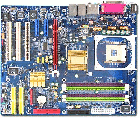New Beijing Clampdowns On Foreign Tech, Drugs

Two news threads that started with relatively isolated moves are showing signs of becoming trends, with word that Beijing is taking new actions against overseas tech and drug firms. In the former case, media are reporting that China is preparing to roll out new security checks for all foreign IT products, in a move that looks aimed at the computing and telecoms sectors. The latter case has media reporting that investigators have visited the offices of Swiss drug giant Roche (Switzerland: ROG), which could auger more formal moves against the company for corrupt business practices.
Taken individually, neither of these latest news bits would be too alarming, since any country should always be vigilant for issues involving this kind of security threat and corrupt business practices. But in the context of other recent developments, both of these moves look slightly worrisome as they could point to a broader wave of campaigns against foreign firms. China launched a similar wave of moves a year ago, resulting in a rare letter of protest from a major western business group. (previous post)
Let’s begin our “crackdown Friday” roundup in the tech space, where media are saying the State Internet Information Office will launch a security check system to make sure all foreign IT products being sold into China don’t pose any national security threat. (English article) The reports cite a government official discussing the rationale for the move, which doesn’t look completely unreasonably since China depends on foreign suppliers for many sophisticated IT products.
But the move comes just a week after a different ministry also banned the use of Microsoft’s (Nasdaq: MSFT) Windows 8 operating system (OS) on all government computers. (previous post) Networking equipment giant Cisco (Nasdaq: CSCO) and leading global cellphone chipmaker Qualcomm (Nasdaq: QCOM) have also both come under similar scrutiny over the last year, the former for security and the latter for anti-competitive concerns.
The bigger backdrop for all of this is the Edward Snowden scandal, which revealed massive US spying programs against both governments and companies around the world, including China. Tech watchers will also recall that Chinese telecoms giants Huawei and ZTE (HKEx: 763; Shenzhen: 000063) have been banned from selling their networking equipment in the US due to security concerns from Washington.
Next there’s Roche, whose offices in the city of Hangzhou were visited by government anti-graft investigators. (English article) Roche confirmed the visit by officials from the State Administration for Industry and Commerce (SAIC), and gave the usual statement that it is cooperating with the investigation.
That particular visit comes just a week after China formally charged a large group of officials from British drugmaker GlaxoSmithKline (London: GSK) with bribing doctors, hospitals and other medical professionals with billions of dollars to sell its products. The GSK probe began last summer, and media reports cited several other foreign drug makers at that time as engaging in similar practices, including Novartis (Switzerland: NOVN) and Sanofi (Paris: SASY).
I doubt these 2 cases are directly related, since the tech moves are more focused on security and anti-trust issues, while the drug cases center on corruption. But taken together, these 2 latest developments, combined with the other recent actions against Microsoft and GSK, do seem to show that government actions targeting foreign companies are starting to heat up again. If that’s the case, we could see more such actions against a wide range of firms in months ahead, meaning major multinationals could be facing a long and stormy summer this year in China.
Bottom line: New moves by Beijing against foreign tech and drug firms indicate a new wave of crackdowns could be coming this summer, centered on security and corruption concerns.
Related posts:
